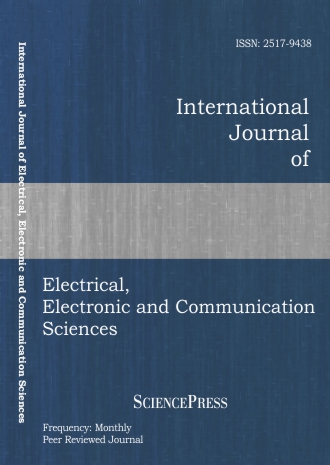
Scholarly
Volume:2, Issue: 11, 2008 Page No: 2488 - 2495
International Journal of Electrical, Electronic and Communication Sciences
ISSN: 2517-9438
1297 Downloads
Optimal Channel Equalization for MIMO Time-Varying Channels
We consider optimal channel equalization for MIMO (multi-input/multi-output) time-varying channels in the sense of MMSE (minimum mean-squared-error), where the observation noise can be non-stationary. We show that all ZF (zero-forcing) receivers can be parameterized in an affine form which eliminates completely the ISI (inter-symbol-interference), and optimal channel equalizers can be designed through minimization of the MSE (mean-squarederror) between the detected signals and the transmitted signals, among all ZF receivers. We demonstrate that the optimal channel equalizer is a modified Kalman filter, and show that under the AWGN (additive white Gaussian noise) assumption, the proposed optimal channel equalizer minimizes the BER (bit error rate) among all possible ZF receivers. Our results are applicable to optimal channel equalization for DWMT (discrete wavelet multitone), multirate transmultiplexers, OFDM (orthogonal frequency division multiplexing), and DS (direct sequence) CDMA (code division multiple access) wireless data communication systems. A design algorithm for optimal channel equalization is developed, and several simulation examples are worked out to illustrate the proposed design algorithm.
Authors:
References:
[1] B.D. Anderson and J.B. Moore, Optimal Filtering, Prentice Hall, New